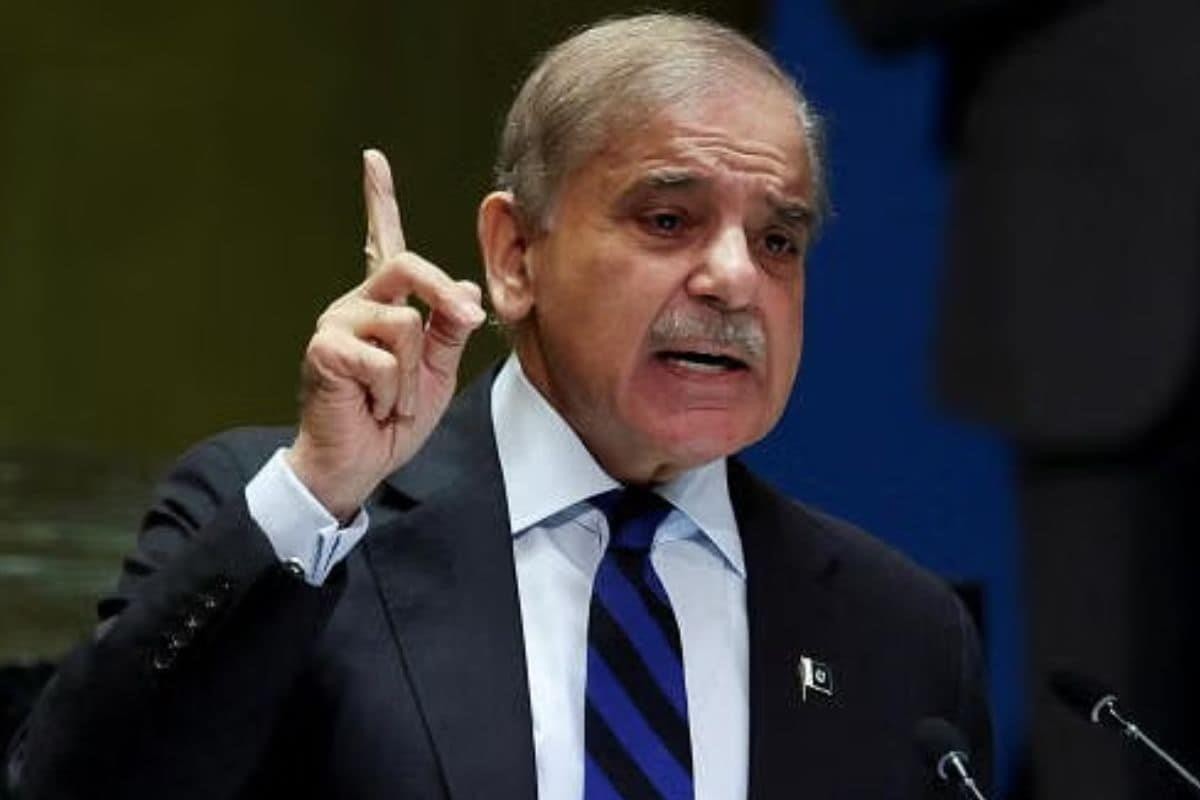Islamabad | June 2, 2025 : In a candid and sobering address, Pakistan’s Prime Minister, Shehbaz Sharif, has openly admitted that the country’s economy is in a deeply precarious state. Speaking to a gathering of policymakers and officials, the Prime Minister highlighted the gravity of the economic challenges Pakistan is facing, and stressed the urgent need for structural reforms to prevent the country from appearing before the international community with a metaphorical "begging bowl."
The statement comes at a critical time as Pakistan continues to grapple with soaring inflation, dwindling foreign reserves, and a heavy debt burden. Sharif’s speech marked a rare moment of public acknowledgement from the highest levels of government about the extent of the economic difficulties confronting the South Asian nation.
A Reality Check
Prime Minister Sharif did not mince words while outlining the current economic scenario. “We must understand that the world is not obligated to support us. They will help only when they see that we are helping ourselves,” he said. “Our goal should not be to constantly seek bailouts but to put our house in order and move toward sustainable development.”
The Prime Minister noted that the global community is increasingly reluctant to provide financial assistance without clear signs of fiscal responsibility and governance reforms. “No one wants to extend help when they perceive mismanagement, lack of transparency, or failure to deliver on reforms,” Sharif said, emphasizing that the onus is now on Pakistan to demonstrate credible change.
Mounting Economic Pressures
Pakistan’s economic troubles have been brewing for years but have intensified in recent months. The nation’s foreign currency reserves, managed by the State Bank of Pakistan, have struggled to stay above $4 billion, barely enough to cover one month’s worth of imports. Inflation, especially in essential commodities like food and fuel, continues to erode the purchasing power of ordinary citizens, with the consumer price index touching historic highs.
Moreover, Pakistan faces significant external debt obligations. With loan repayments to international creditors and multilateral institutions such as the International Monetary Fund (IMF) and World Bank due in the coming fiscal quarters, there is increasing pressure on the government to secure more aid or risk default.
Reforms as the Only Way Forward
The Prime Minister underlined that the only sustainable path forward is through homegrown economic reforms. He proposed an agenda centered around increasing domestic revenue, curbing government expenditures, improving tax compliance, and investing in sectors with long-term growth potential, such as agriculture and information technology.
Sharif also pointed to the importance of political stability and governance improvements, noting that investor confidence is deeply tied to the perception of institutional reliability and the rule of law. “Without restoring the confidence of investors — both local and foreign — we cannot hope to build a resilient economy,” he said.
Past Lessons, Future Directions
Pakistan has a long history of turning to the IMF and other lenders in times of crisis. In fact, it has entered into more than 20 bailout arrangements with the IMF since its founding. Critics argue that these frequent bailouts have perpetuated a cycle of dependency and short-term fixes rather than encouraging meaningful reforms.
Analysts suggest that for any reform agenda to succeed, it must be accompanied by political will and public support. “There needs to be a consensus across political lines that economic reform is not optional but essential,” said economist Dr. Ayesha Siddiqui. “This isn’t just about austerity — it’s about building a future where Pakistan doesn’t need to go around the world asking for financial help.”
International Response
International stakeholders have cautiously welcomed the Prime Minister’s remarks but remain skeptical about implementation. A senior diplomat based in Islamabad, speaking on condition of anonymity, remarked, “Words are important, but the global financial community is looking for concrete action. There’s very little patience left for promises that aren’t followed through.”
Meanwhile, the IMF has laid out strict conditions for the release of the next tranche of funding, including tax reforms, energy sector restructuring, and measures to improve state-owned enterprises' efficiency. These reforms are seen as politically sensitive and could face resistance domestically.
Public Sentiment and Hope
On the streets of major cities like Lahore, Karachi, and Islamabad, citizens have expressed mixed reactions to the Prime Minister’s comments. While many agree with the sentiment that Pakistan must become economically self-reliant, they also fear that the cost of reforms may be passed down to the public in the form of increased taxes and reduced subsidies.
Still, others view the speech as a necessary wake-up call. “It’s good that our leaders are finally acknowledging the truth,” said Umar Raza, a small business owner in Rawalpindi. “We’ve been living beyond our means for too long. It’s time we face the music and fix what’s broken.”
Prime Minister Shehbaz Sharif’s acknowledgement of Pakistan’s economic hardship and his appeal to end the cycle of dependency marks a pivotal moment in the country’s economic narrative. Whether his words translate into policy and whether the government can withstand the political cost of meaningful reform remains to be seen. What is clear, however, is that the status quo is no longer tenable, and the road to recovery will demand both courage and consensus.
Key Takeaway
/*Islamabad | June 2, 2025 :*/ In a candid and sobering address, Pakistan’s Prime Minister, Shehbaz Sharif, has openly admitted that the country’s economy is in a deeply precarious state. Speaking to
Follow us on Instagram
@_newspews